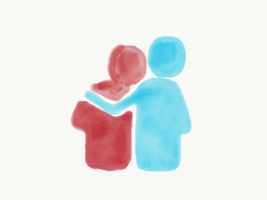
Some blame politics, others blame social media, bad parenting, or reality TV, but we are currently experiencing a “respect problem.” Respect seems to have gone the way of the Edsel or the Compaq computer. The lack of respect has gotten so bad that many Americans no longer respect their elders, one of the most basic of the world’s values.
Said writer Melissa Powell:
“We tend to view someone who is over 65 as ‘old,’ and in our culture, that can mean being sidelined at work, disrespected on a daily basis, or generally ignored by family and society. Unlike much of the rest of the world, we don’t always view the experience and accumulated knowledge of those who have come before us as something to be treasured and sought out.”
Unfortunately, the lack of respect extends far beyond “age.”
Writer J.J. Richardson feels:
“One of the reasons people don’t show respect for a person, group, or idea is because they believe such would disparage other persons, groups, or ideas—that somehow there is only ‘so much respect available,’ hence ‘zero sum’—once the supply of respect is used up, there is no more.”
Can this be true? If I show respect to a 95-year-old WWII veteran, does that mean I have no more respect left over for a nurse who has just put in a 20-hour shift on a COVID-19 ward? I would hope not. I would have hoped that most people have enough “respect reserves” to respect everyone they meet.
The Absence of Empathy
As I read all of the opinions and researched the subject of respect, I was saddened to take away that many of our hearts are hardening, and our humanity is suffering.
Scientific American recently (September 17, 2020) published an article entitled “The U.S. Has an Empathy Problem,” and for me, it encapsulated why respect has been on a decline:
“Whenever people are troubled or hurting or dealing with serious problems, they want to feel that other people understand what they are going through and are concerned. But opportunities to give and receive empathy feel less than adequate these days people are often so preoccupied with their struggles that they aren’t as attuned to other people’s problems as they otherwise might be.”
The authors contended that we have stopped listening to each other. We have stopped hearing one another, supporting one another, and, by extension, loving one another. How can we respect one another if we don’t love one another?
Are we, as humans, not capable of heartfelt love for someone of different ages, races or religions? I have much more faith in people than that.
If we make a new acquaintance and they talk to us with open hearts and tell us of their life, experiences, or problems, can we not pause for a minute and think, “Yes, I understand. I may not have had your life experience, but I will honor you by listening and caring.”
Beyond that, are we indeed so different that we have lost our ability to laugh or cry with someone? I don’t think so.
We all have a story to tell. The more we respect one another, the more our actions become a single story of human dignity and triumph. If we understand one another, maybe we can finally reach the common ground called respect.
___________________________________________________________________________
For more information about Hall of Fame speaker and bestselling author Steve Gilliland and the Gilliland Foundation, please contact steve@stevegilliland.com / 724-540-5019 / www.stevegilliland.com.